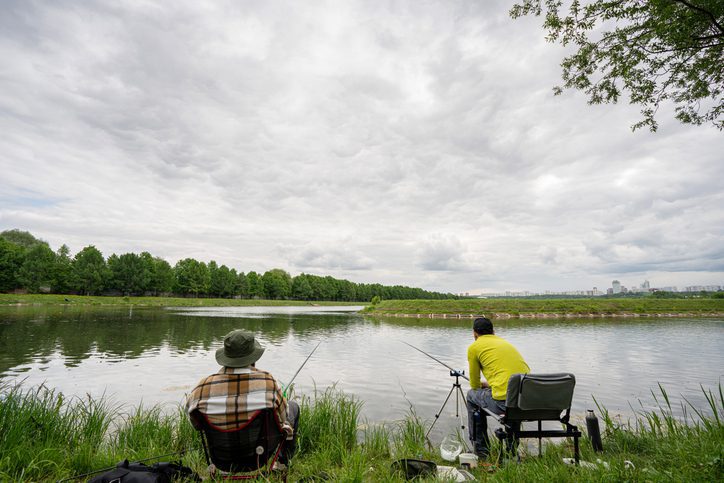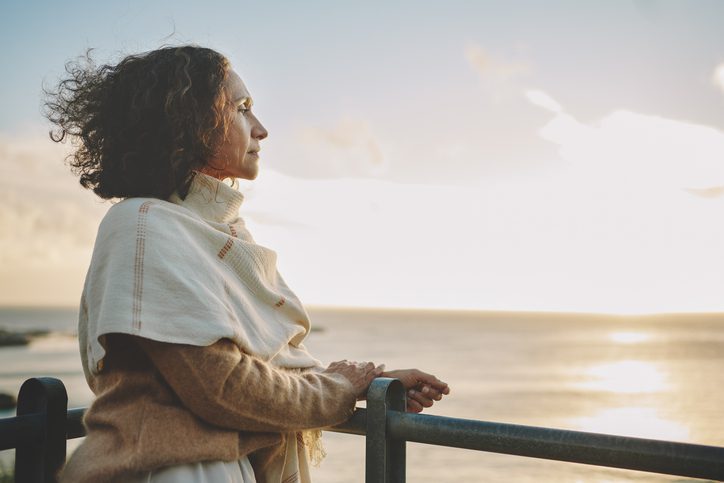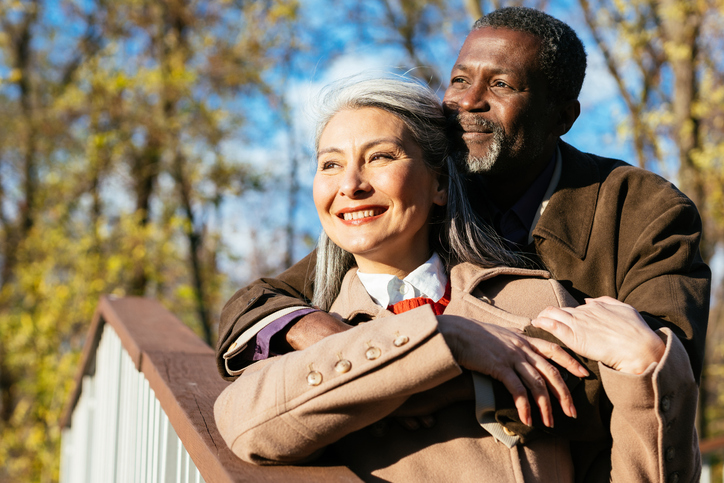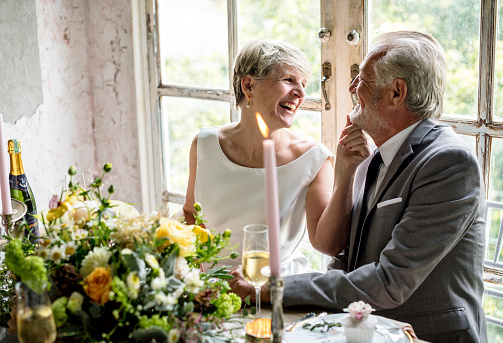Over 15 million people in the U.S. are widowed (3.7 million are men, 11.48 million are women, per 2022 Census data). Chances are, you can think of at least one person in your circles who is currently widowed, facing widowhood or moving forward after loss. Perhaps you find yourself in one of those categories.
Even if you don’t have personal experience losing a partner, there are small but meaningful steps you can take to support those who have. These steps can even help you prepare for your own widowhood experience, as much as one can.
1. Offer Support in Completing Paperwork
Getting your financial and legal ducks in a row—planning your retirement, for example, or writing advance directives—is a challenging process for most people. Imagine walking through that paperwork without a partner.
Offer to sit beside someone who needs to do preparatory paperwork, or to help attack the mountain of paperwork that accumulates after someone dies. You can offer moral support—a cross between a coach and an accountability partner. Hold their hand as they drop off the packet at the post office, or offer to go with them to the accountant or attorney’s office.
You may even want to suggest a special activity (lunch at a new restaurant in town, a walk through a beautiful park, or shopping at a favorite store) to acknowledge the difficulty of completing this step. Hold space for the mixed emotions that may arise: relief at the work being done and grief for the finality it represents.
2. Be an Active Listener
Let your loved one talk about their person. Don’t be afraid to bring the deceased partner’s name up in conversation or ask questions about them. Look at pictures together. Let your loved one sob or curse, tell stories or jokes about their person, or allow them to reminisce about the hardships of caregiving and life.
Anger is part of the grief process; it’s a healthy way of dealing with the unfairness of sudden death or a drawn-out decline. Anger and sadness can also come with the scary unknowns of an altered future. Assure your friend or relative that all feelings are welcome. Be present as a safe place for those feelings to land however they must.
Whether you’re newly widowed or navigating divorce, The Hartford offers free, downloadable PDFs developed by The Hartford’s corporate gerontologists to help guide you through this transition.
3. Help Meet Their Basic Human Needs
People who are grieving or anticipating loss still need to eat! Bring them meals, take them grocery shopping or out to dinner, pack a picnic lunch with their favorite drink and share it together on the back patio. Or invite them to your home for a meal to get out of the house for a bit.
Support their mental health and physical wellness by accompanying them to doctor’s appointments, therapy sessions or support groups. Take them on a day trip for a change of scenery.
Help them pack up or paint the house if they are prepping it for sale. Mow their lawn, change light bulbs, clean out gutters. Ask them what their spouse did that they need help doing now in their absence. If a change in vehicles is necessary, consult our .Widows Guide to Car Buying & Selling
4. Encourage Engagement in New and Favorite Activities
People can get stuck in their grief. While we never want to diminish the pain of the process or put a time limit on it, there are situations when offering a gentle nudge—even early—on may be the little push they need to move forward. Even if it takes a while for them to take that first step.
You can suggest starting small. If they love art, for example, that could mean getting a small canvas and set of paints from an art supply store rather than taking a class with other people. If they’re interested in a class but don’t want to go alone, find one you can attend together. Scheduling events to look forward to is a great way to heal and grow after loss.
Don’t live nearby? There are many creative workshops offered online. This also gives your person the opportunity to do the class solo without leaving home or having to interact on hard days.

The Takeaway
Widowhood is not something most people plan for. It often happens without warning or much time to adjust. But there are ways to move gracefully through the gritty experience into growth, and to support those who find themselves on that hard road.
This is our first post in what we are building as a larger series for the millions of 60+ widows and widowers—and all the people who care about them. In each piece, we’ll offer a road map for navigating the unexpected journey with confidence, hope, and resilience.







I am the person who the was left behind three months ago. Through their hospice providing company, I am seeing a grief counselor at no extra cost. This has been greatly welcomed. I absolutely agree with the suggestions made in this article.
I am a recent widow. My childhood friend just loss her husband 3 weeks ago. We talk daily and often cry together. There is a group of our high school buddies who are also widowed. I am thinking about brining them together monthly for lunch. Your thoughts. 🙏🏽
I am preparing to move to a 55+ community – downsizing from my home of 55+ years. I will be sad at leaving my house & my stuff but looking forward to new apt, with simpler lifestyle & no more headaches dealing with issues of owning a home.
Widowhood is not a short term situation, it is a lifelong state of being that no person to wants. Be sensitive to the fact that 10 – 20 – 30+ years later the person left behind is still suffering, especially around anniversary dates like the departed’s birthday, death anniversary, wedding anniversary and family events like birth of grandchildren and their milestones. Too many times I’ve gotten responses like “but he’s been gone x years, you should be over it”, or the person is just ignored like they never existed. Very hurtful to the person still suffering.
May you find peace in your memories and solace too. It does get easier it just takes time. When someone asks (or tells) you to get “over it” turn it around and ask them what they remember about them most. Sharing memories helps a lot.
Being a widow is doubly hard when you lose both your husband(and best friend)and 1/2 his income. My house and car insurance have doubled and tripled since he died in 2020. Just trying to stay in our tiny house gets harder every year. And since I am on a fixed income and have had 2 major operations, my nest egg is almost depleted with the higher inflation. I am constantly aware of that income loss as well as this loss of my love.
Hey Debra, it’s a double trauma: financial and emotional. I was able to decrease my auto insurance by half ($1,325 per year) when I switched to The Hartford. It may be worth the time to get a quote. I am so sorry we are in this “club,” no one signs up for, so we have to help each other where we can. God bless, JT
I found an amazing organization called Modern Widows Club. It is a wonderful international organization that supports widows in every aspect. They have a local chapter in my area. It’s widows supporting and encouraging widows.
Excellent article! Keep them coming on this topic.
Thank you all for this article. I will
Share it with the Widow’s group I’m in
Thank you
My mother just recently became widowed when my stepfather passed. They were married 47 years. I see her going through all of these things and still going through it. I have been staying with her most days since. Helping her with these exact things.
That is the most important thing you can do now, and in the future, be there.
Some days the dishes are left in the sink, the laundry is piled up, a meal needs to be made, a smile and hug sometimes is the catalyst to get someone’s a** off the couch.
Just be there.
Yesterday, A very good Friend shared that her sister just lost HER HUSBAND…. while several of US FRIENDS were all TOGETHER sharing some positive AND encouraging thoughts on ZOOM. I will
definitely see to it to share the Hartford’s email information AND the Positive and encouraging thoughts from God’s Word found in the Scriptures. Thank you. E.L.F.
My partner of 24 years suddenly was taken from me followed by parents, close relatives and best friend. 6 funerals in 4 months. There was no one left to comfort me (no hugs). The executor of the will “legally” took all the money and sold my home. That was 10 years ago and only the love of a couple dogs from the local shelter and lots of therapy helped me through.
I was divorced at 65 after40 yrs of marriage. I know a lot of the same feelings of loss, anger, and loneliness. Thank Yoi for the article.
I’m adjusting being without My husband of 53 years, I don’t enjoy being by myself but I’ve learned to not mention it. I don’t want My 3 Sons to feel guilty, they have their own families to raise. Financially, I’m good so that’s a blessing & driving is not a joy but it’s necessary in order to remain independent.
This article is very thoughtful and insightful. This widower was buried in paperwork when my husband passed. It never occurred to me, or anyone else, that anyone else could help me with it. The other suggestions are right on, too. You rock, Hartford!